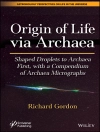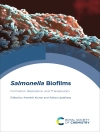Probiotic microorganisms have a long history of use, and their health benefits for hosts are well documented. This Microbiology Monographs volume provides an overview of the current knowledge and applications of probiotics.
Reviews cover the biology and probiotic potential of the thoroughly studied prokaryotic genera Lactobacillus and Bifidobacterium, several eukaryotic microorganisms, probiotic strain characterization, and the analytical methods (such as FISH, microarray, and high throughput sequencing) required for their study. Further chapters describe the positive effects of probiotics on malabsorption disorders such as diarrhea and lactose intolerance, and document the clinical evidence of benefits in treating allergies and lung emphysema, and in dermatological applications. Also addresses are topics such as genetically engineered strains, new carriers for probiotics, protection techniques, challenges of health claims, safety aspects, and future market trends.
Jadual kandungan
Daniel Obed Otieno: Biology of prokaryotic probiotics.- Sukanta Kumar Nayak: Biology of eukaryotic probiotics.- Berit Hippe et al.: Detection and Identification of Probiotic Microorganisms and other Beneficial Organisms from the Human GI Tract.- Benjamin D Huckle & Zhibing Zhang: Maintenance and protection of probiotics.- TC Bamunuarachchige et al.: Genetic engineering of probiotic microorganisms.- Wai-Yee Fung et al.: Roles of probiotic on gut health.- Vivekananda Mandal and Narayan C Mandal: New health potentials of orally-consumed probiotic microorganisms.- Siok-Koon Yeo et al.: Carriers of Probiotic Microorganisms.- Benedetta Cinque et al.: Use of probiotics for dermal applications.- István Siró: Challenges of beneficial health claims.- Fumiaki Abe: Safety and regulation of probiotic foods and supplements.- Caroline T. Yamaguishi et al.: Current market trends and future directions.












